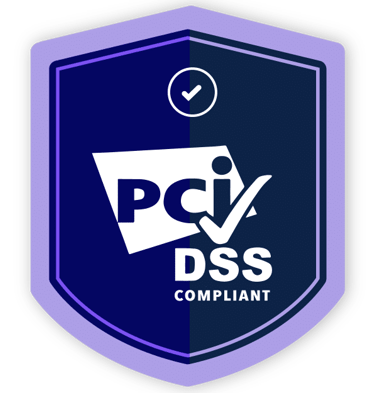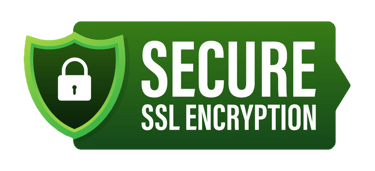Medicare Conditions of Participation Made Simple for New Home Health Owners
This version is structured for web publication — written in an authoritative yet easy-to-understand tone for new home health agency owners, aligning with CMS Conditions of Participation (CoPs) and optimized for keywords like home health startup compliance, Medicare certification, CoPs explained, home health survey readiness, and HealthBridge consulting.
Launching a new home health agency is an exciting and rewarding venture — but it comes with one of the most challenging responsibilities in healthcare: Medicare compliance. To be certified and reimbursed by the Centers for Medicare & Medicaid Services (CMS), every agency must meet the Medicare Conditions of Participation (CoPs) outlined in 42 CFR §484.
For new owners, these regulations can seem overwhelming at first glance. However, understanding and implementing them correctly from day one is the foundation of your agency’s success, reputation, and longevity.
This guide breaks down the Medicare CoPs into clear, understandable sections — helping new home health owners grasp what’s required and how to stay compliant during surveys and operations.
What Are the Medicare Conditions of Participation (CoPs)?
The Conditions of Participation are federal requirements that set the minimum standards all home health agencies must meet to participate in the Medicare and Medicaid programs.
They define how your agency must operate, from patient care and documentation to leadership and quality improvement. The CoPs ensure that all agencies provide safe, effective, and patient-centered care — regardless of size or location.
Think of the CoPs as the rulebook of Medicare certification. If your agency fails to meet them, it can lead to survey deficiencies, corrective action plans, payment suspension, or even loss of certification.
Why Every New Owner Must Understand the CoPs
Many new home health owners focus on startup logistics — obtaining a license, hiring nurses, and finding patients — while overlooking how the CoPs tie everything together.
Ignoring these regulations can cause costly delays, failed surveys, and compliance violations. By understanding the CoPs early, you can:
Pass your initial CMS or accreditation survey with confidence.
Avoid deficiencies and citations that stall certification.
Develop policies and procedures that align with Medicare standards.
Build a culture of quality, safety, and documentation integrity.
Strengthen your reputation with patients, referral sources, and payors.
The Core Sections of the Home Health CoPs
Below is a simplified breakdown of the key CoP areas every home health owner should know and what they mean in practice.
1. Patient Rights (§484.50)
Every patient under your care has defined rights — including the right to be informed about their care, to refuse treatment, and to voice complaints without fear of retaliation.
What this means for you:
Provide each patient with a Notice of Rights upon admission.
Explain services, costs, and complaint procedures clearly.
Document that the patient or representative understood and signed the notice.
Have a process to investigate and resolve grievances promptly.
2. Comprehensive Assessment of Patients (§484.55)
This section defines how and when patient assessments must be completed.
What this means for you:
Conduct an initial assessment within 48 hours of referral or physician order.
Complete a comprehensive assessment using the OASIS tool for Medicare patients.
Reassess the patient regularly or when the condition changes.
Use findings to update the plan of care and communicate with the physician.
3. Plan of Care (§484.60)
The plan of care (POC) is the roadmap for the patient’s treatment and services.
What this means for you:
Ensure the POC is individualized and physician-approved.
Include all disciplines (nursing, therapy, social work, aide).
Review and update the plan every 60 days or as needed.
Document all interventions, outcomes, and progress notes that align with the POC.
4. Coordination of Care (§484.60 and §484.75)
Surveyors want to see that your care team communicates effectively and that all disciplines coordinate for optimal outcomes.
What this means for you:
Hold regular case conferences or interdisciplinary meetings.
Ensure documentation reflects communication between nurses, therapists, and physicians.
Train staff on the importance of consistent, accurate coordination notes.
5. Quality Assessment and Performance Improvement (QAPI) (§484.65)
QAPI is the backbone of continuous quality improvement in home health. It’s also one of the most cited areas during surveys.
What this means for you:
Collect and analyze data on performance indicators (e.g., infection rates, patient satisfaction, hospital readmissions).
Identify areas for improvement and implement corrective actions.
Evaluate and document outcomes each quarter.
Present findings to your governing body and track follow-up actions.
6. Infection Prevention and Control (§484.70)
Home health agencies must have written policies and an active program for infection control.
What this means for you:
Assign a designated Infection Control Nurse or Coordinator.
Provide annual staff training on PPE, hand hygiene, and transmission precautions.
Document infection surveillance and report trends in QAPI.
Maintain clear protocols for cleaning, supplies, and waste disposal.
7. Skilled Professional Services (§484.75)
This section ensures all services are provided by qualified professionals under proper supervision.
What this means for you:
Verify licenses and competencies before staff begin care.
Maintain clear job descriptions and performance evaluations.
Provide orientation and ongoing competency training for all clinicians.
8. Home Health Aide Services (§484.80)
Aides are vital members of the home health team, and their training and supervision are strictly regulated.
What this means for you:
Ensure all aides complete a state-approved training program and competency exam.
Conduct on-site supervision by a registered nurse at least every 14 days.
Keep documentation of all aide competency checklists and evaluations.
9. Compliance with Federal, State, and Local Laws (§484.100-484.110)
CMS expects all agencies to comply not only with federal law but also state licensing and professional practice laws.
What this means for you:
Maintain updated business licenses, liability insurance, and Medicare enrollment data.
Ensure staff meet professional scope-of-practice requirements.
Report any ownership changes, relocations, or key personnel updates to CMS promptly.
10. Emergency Preparedness (§484.102)
Your agency must have an emergency plan to protect patients and staff during disasters.
What this means for you:
Develop an all-hazards emergency plan with communication, evacuation, and backup procedures.
Train staff annually and document drills.
Maintain patient emergency contact and priority lists.
Common Mistakes New Home Health Owners Make
Many first-time agency owners struggle not because of clinical performance, but because of compliance documentation. Common pitfalls include:
Missing patient rights acknowledgments.
Incomplete or outdated policies and procedures.
Lack of QAPI data or governing body review.
Staff working without verified competencies.
Weak infection control oversight.
Poor documentation of interdisciplinary communication.
Each of these can result in a survey citation or a condition-level deficiency if not corrected.
How to Stay Compliant Year-Round
Develop strong, CoP-based policies and procedures.
These serve as your daily roadmap for care and compliance.Train all staff on CoPs during onboarding and annually.
Reinforce documentation, rights, and infection control.Conduct internal audits and mock surveys.
Review a few charts each month to identify compliance gaps early.Hold monthly QAPI meetings.
Review performance data and track ongoing improvement.Keep leadership engaged.
The Administrator, DON, and governing body must remain actively involved in oversight.
By embedding compliance into your agency culture, you ensure that surveys become routine verifications of quality — not stressful surprises.
The HealthBridge Advantage
Navigating the Medicare Conditions of Participation can be complex, especially for new owners. At HealthBridge, we make compliance simple, structured, and sustainable.
Our consulting team specializes in:
Home health and hospice startup guidance.
Development of CoP-aligned policies, procedures, and forms.
QAPI program design and management.
Clinical documentation reviews and mock surveys.
Ongoing compliance oversight and leadership training.
Whether you’re preparing for your initial Medicare survey or looking to strengthen your existing compliance program, HealthBridge provides expert guidance tailored to your agency’s needs.
Contact HealthBridge today to ensure your home health agency meets — and exceeds — every Condition of Participation with confidence.





